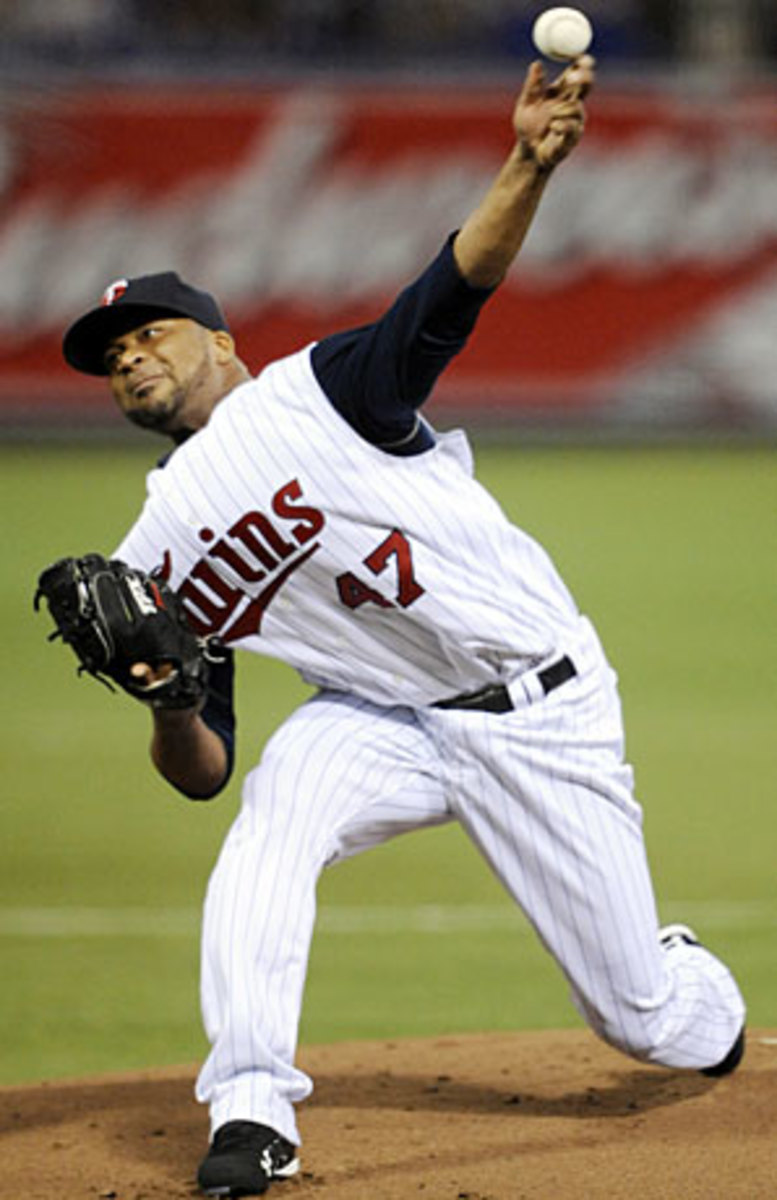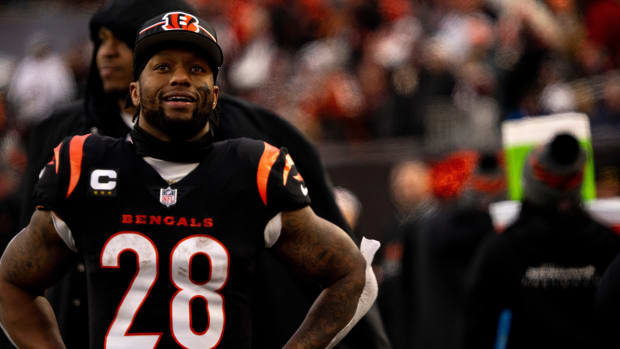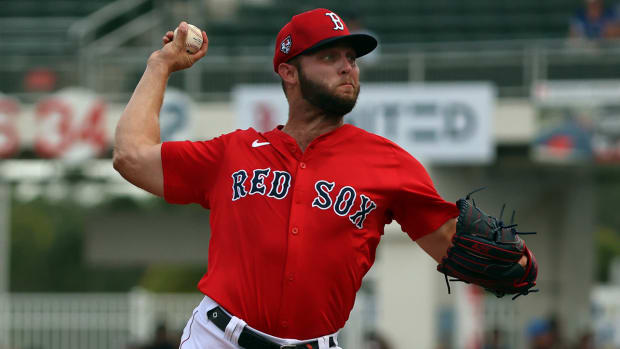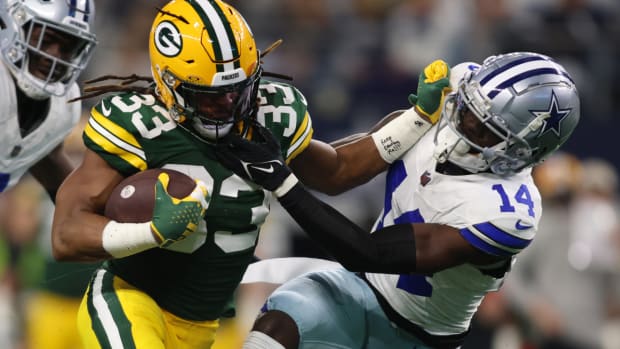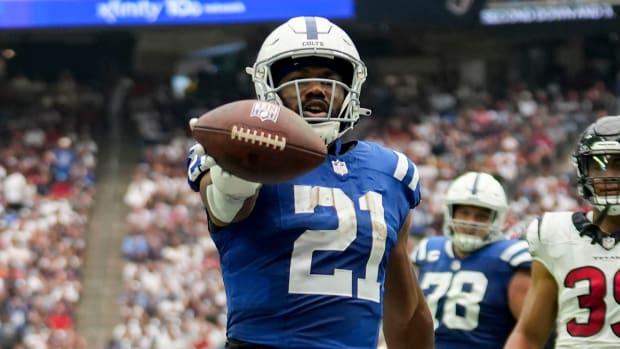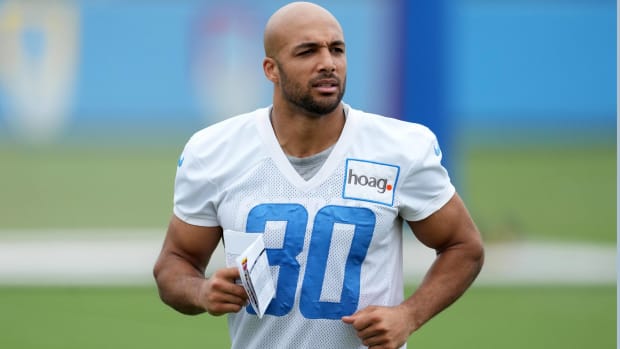Perfect Pitch
Fantasy baseball is a fun game (and when I say "game," I mean "obsession") but every so often an action or decision sucks the air out of your league. For me, it happens whenever the league rules -- or their interpretation -- stand in front of the competition. It's like an ump making a bad call that destroys the relevance of the play on the field. This happened this past weekend in my NL-only keeper league because of an interpretation of the rules regarding AL/NL trades. In our league, if you lose a player to the AL, you get back the talent coming into the NL for the rest of the season at the same salary as the player you lost. Also, it's the commissioner's discretion to award more than one player to the team owner if the players' respective values warrant it, but this is not an everyday occurrence.
So one owner lost Jason Bay to the AL, and he should get Manny Ramirez in return, right? Yes, you could argue that there wasn't a direct exchange and perhaps he should get Brandon Moss or Craig Hansen, but we won't. So Manny for Jason, and heck, you could even argue that Manny is worth more than Bay (look at those batting averages). But the Bay owner in our league said he should get Manny and Moss, and then turned down Hansen, thinking he should get all three. In the words of Kyle Broflovski's mom, "What-what-what?" There was a lot of discussion of procedure, but not once (and not since) did anyone hint at why Manny wasn't enough for losing Bay. And yes, somehow, he was awarded Manny and Moss (if we added in Jack, he could have all the Pep Boys).
So I'm stuck with figuring which is worst: being totally ignored, having someone pull the wool over other players' eyes with bad stats, or being in a league where no one realizes Moss' value will explode for the rest of the year because he has a starting gig. Wait, is it me?
Along the same line, it's not just fantasy baseball in which we scratch our heads at the personnel decisions made during the season. Here are eight of the more interesting decisions made this year (my "crazy eights"), and how they've panned out.
Decision #1: Let's bring Francisco Liriano back too early, send him down like it was his fault, and then bring him back up too late.
If one issue has dominated the thoughts of fantasy players with respect to starting pitching, it's been this one. As we've discussed many times in this column, it takes a good 18 months to recover from Tommy John surgery. But most general managers think they're also doctors and rush pitchers back as quickly as 12 months later. This not only derails the recovery process, but can result in further (and permanent) injury.
In his three April starts, Liriano had an ERA of 11.32. He then got sent down and started to improve his pitching (I use the term "improve his pitching" deliberately: his velocity was down, but he got better at getting outs without his best stuff). He did win his first game back, giving up no runs, and for the first time this year recording more strikeouts than walks. Liriano is, of course, gone in every league, and I watched him sit on the waiver wire after he was initially dropped only to watch someone else pick him up. Just proves that fantasy baseball is a marathon, not a sprint (and hopefully in better air than that found in Beijing). But to be fair (and I like to be fair), the Twins mismanaged his return before his 18 months were up, but likely did the right thing waiting to bring him back for a game where he would succeed.
Just keep two things in mind: (1) Liriano's game against Cleveland may be the high point of his pitching the rest of this year as the Indians are awful against southpaws (they're last in the AL in AVG against lefties), and (2) he is not at full strength and will get shelled a couple of times. So if you're in a non-keeper league and want to sell high, that's not a bad idea, either.
Decision No. 2: Let's bat the pitcher eighth in the order.
Tony LaRussa is a pioneer of the second leadoff hitter concept by having his pitchers bat eighth. But since pitchers are awful hitters, he's crazy, right? Not necessarily. Even though batting the pitcher eighth makes life harder for the No. 7 hitter because he can now be pitched around, with the pitcher batting higher in the order, the probability of creating the final out of the inning is lessened (at least the first time around the order). Also, if you make the pitcher work a little harder at his batting, perhaps he doesn't create an out at all and the rally keeps going with less outs. Suddenly you have all sorts of possibilities. LaRussa now looks crazy as a fox.
And the rest of the NL Central agrees. In addition to the Cardinals, the Brewers and Pirates have also experimented with the lineup change. While in fantasy leagues the batting stats of pitchers are rarely used, any improvement in run support for a pitcher has direct bearing on his ability to win games.
Oh, and if your pitcher is used regularly as a pinch hitter, trade him immediately as nothing good comes of this. Just ask the struggling Micah Owings (or the 2001 Mike Hampton).
Decision No. 3: Let's give in to the owner's son and make Joba Chamberlain a starter.
Near the beginning of the year I wrote that Chamberlain should be left in the bullpen because stretching him out this early for such a pressure-packed situation could lead to all sorts of problems, physical and mental. The Yankees front office seemed to agree, but then Hank Steinbrenner yelled that Chamberlain should start, and they caved. Granted, Chamberlain has pitched decently as a starter, with a 3-1 record and more strikeouts than innings pitched, but he's only 22 and started the year as a reliever.
He's approaching 100 innings pitched, which, to a reliever, is still a lot of work. And as I write this (and almost on cue) he's coming out of a game with what looks like a shoulder problem. We can only hope Hank knows a good doctor as well.
Decision No. 4: How about we give the Orioles a starting outfielder, a closer and three other guys for a pitcher who has never reached 200 IP in a season and finished 2007 on the DL.
To be fair, Erik Bedard had been the guy most likely to become a stud starter and most agreed he was being wasted in Baltimore. However, sometimes the best trades are the ones you don't make, and the market was just too hot for him (think Barry Zito). The Mariners also had pressing issues, like getting a first baseman who could hit more than Carlos Silva's weight. Which, in reality, was a subservient issue to having a rotation that required the services of Carlos Silva. Now the team is stretching out Brandon Morrow to be a starter. That's not a terrible idea, but (1) he should do so in minors in August and then in the majors in September, and (2) you should stay away from him this year, especially as he is about five starts away from hitting his total innings pitched from last year.
Decision No. 5: Let's trade for a perennial DL visitor whose value is at a high.
Rich Harden breaks hearts as much as he breaks bones and usually ends up sitting his Cy Young-like potential on the DL. This year, after missing the first quarter of the season, he came on strong and was snatched up by the Cubs. The A's were happy to sell high, and the Cubs were happy to take a chance on getting another ace. As it turns out, Harden has pitched well enough to create four wins for the Cubs (they're 3-1 in his games, while he is 1-1) and could be just enough to overcome the Brewers pick up of CC Sabathia (hey, let's start calling him CG Sabathia for "Complete Game") and the Cardinals welcoming back Chris Carpenter and Adam Wainwright. The question is whether Harden can stay healthy enough to be a long-term part of the Cubs' plans (or your keeper team).
Decision No. 6: Send down the strikeout artist of the future and start Doug Davis.
The Diamondbacks made the decision to stick with the post-surgery Davis over phenom Max Scherzer. Part of the issue has been Scherzer's sore shoulder, but they still made the conscious decision to stick with Davis. The results have been a little better than expected, and likely the right move. Davis still hurts your ratios, but his strikeout rate is his highest since '05 and his walk rate is his lowest since then as well. If you have Davis, here's one way to minimize the damage: sit him during day games as he is 0-3 with a 7.80 ERA during the day, and 4-3 with a 3.58 ERA at night. And outside of Fantasyland, let's all root for Davis anyway. Way to go, 49.
Decision No. 7: Let's spend our money and time getting more offense and forget to address our number one problem -- relief pitching -- and expect to get to the postseason again.
Sometimes we use a combination of intuition and luck to predict the problems a team will have. Other times, we look at the 20-foot sign with big flashing neon letters. For those of us who said the Tigers had to fix their bullpen and couldn't win it on offense and starting pitching alone, we used the latter technique. It was obvious that Todd Jones and crew weren't going to get it done this year. So what did the Tigers do? Beefed up their offense to the point of excess (as it turns out, it was to the point of diminishing returns), acquired Dontrelle Willis (a pitcher with a 1.60 WHIP in arguably the best pitcher's park), and counted on a 40-year-old with an ERA over 4.00 and six blown saves last year to protect their ninth inning leads.
But to make matters worse, when they did finally make a move for relief pitching, it was giving up a future Hall of Fame catcher for a guy with more career blown saves than saves and an ERA over 4.00. Was there no package the Tigers could put together for Brian Fuentes or Jon Rauch? Look, we realize your starting pitchers blew your chance at the World Series with all those postseason errors, but quit punishing them by losing their leads in the eighth and ninth innings. Please. And the fantasy take-home lesson is that if the Tigers do shore up their bullpen in the offseason, their starters become sleepers for '09.
Decision No. 8: Even though we're below .500 and have no postseason chance because we're in the toughest division in baseball, let's make a deadline trade for a 32-year old who hasn't pitched 200 innings since '03 and will be a free agent next year.
Hey, the Astros got a good deal in Randy Wolf, but the question has to be, "Why?" Perhaps they can sign him for next year, but if he continues to pitch this well someone will break the bank for him with a three-year deal and then have to eat the last two years when he ends up on the DL. Positioning themselves to be that someone is not what the Astros should do. And Wolf is not in too much better a situation than he was in San Diego.
Today's column was brought to you by Bad Idea Jeans. Until next week, keep taking the bump.
































